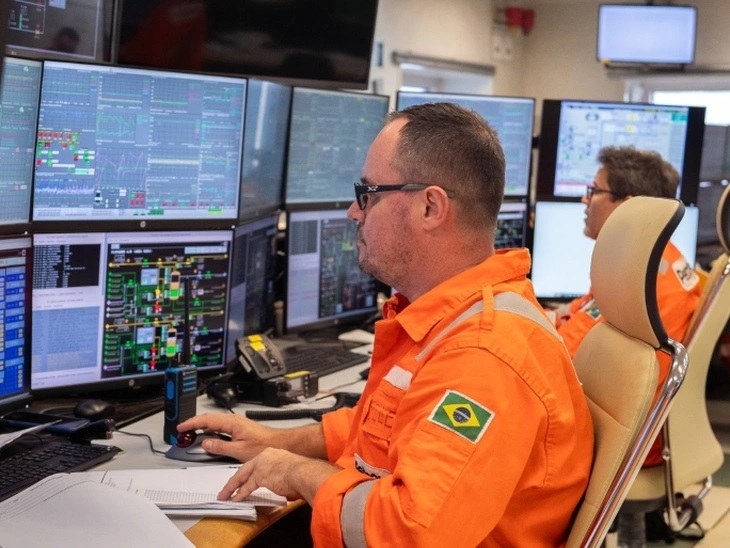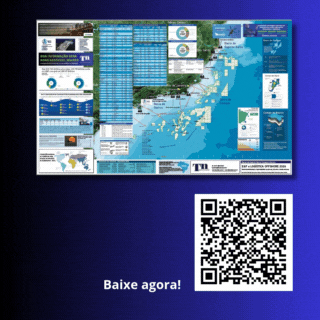PRIO is investing in research, development, and innovation to increase efficiency in mature fields.
The company does not work with predefined lines - new partnerships with startups and educational institutions focus on using technology applied to current operational challenges.
T&B Petroleum/Press Office09/07/2024 19:15

With the aim of seeking the best solutions to produce amid the inherent challenges of mature fields, PRIO invests in research and innovation as a way to capture opportunities. As a result, the largest independent oil and gas company in the country signed three new partnerships in the first half of this year focused on enhanced oil recovery and seismic inversion.
"We are open to learning and seeking the best market solutions with a focus on high performance and results. If necessary, we test, promote development, and do things differently. Our goal is to find practical applications to solve the inherent problems in mature field operations - ranging from reservoir management to corrosion treatment and risk management. Among other things, we aim to increase reservoir recovery factor and production, always focusing on safety," explains Francilmar Fernandes, Operations Director at PRIO.
The company began discussions in 2023 with potential partners focused on deepening the understanding of the mechanisms by which each method increases production. Contracts were signed with PUC-Rio, UFF (Federal Fluminense University), and the startup Wikki - which creates mathematical models and digital simulations for industrial sectors.
"The R&D structure we have set up was born with a focus on solving real and high-impact problems at PRIO. Therefore, the definitions of our research lines are 'alive' and adjusted quarterly with the emergence of new challenges. It's hard to pinpoint all the topics of interest. Some are already well-defined, while others are gradually taking shape," highlights Arthur de Almeida, Reservoir Engineer and R&D focal point at PRIO.
Advanced Recovery
Low-salinity water injection is one of the topics closely monitored by the oil company in recent years. The partnership with Wikki aims to deepen this subject and overcome challenges related to understanding the phenomena by which this type of treatment increases oil recovery. With open-source technologies and digital simulations, the startup will analyze the impact of salt composition in injected water on different lithologies (or rocks) to optimize oil recovery at the ideal concentration.
"The intention is to develop a simulator capable of predicting the effect of Low-Salinity water for different ionic concentrations and reservoir conditions, as well as comparing its effect with other advanced recovery methods," emphasizes Arthur. Rodrigo Dias, CEO of Wikki Brasil, says cultural synergy was crucial for forming the partnership. "We combine technology agility with open innovation concepts, always relying on continuous communication and commitment between the experts of both companies," he adds.
Meanwhile, with the Laboratory of Microhydrodynamics and Flow in Porous Media (LMMP), linked to the Department of Mechanical Engineering at CTC/PUC-Rio, the goal is to study the effect of microemulsions in water injection as an advanced recovery method for two of the company's operated fields. The objective is to refine the effects of droplet size in emulsions injected into the reservoir to optimize characteristics and estimate their effects on controlling excessive water production, incorporating an active research line.
"The LMMP has already been developing the oil-water emulsion injection process as an advanced recovery method for several years. In this project, we will move towards optimizing and applying this technique considering the specific characteristics of two PRIO fields. We are very excited about the partnership and the results it will bring to both the laboratory and the company," explains Prof. Marcio Carvalho, coordinator of LMMP.
Seismic Inversion
Another immediate challenge that the company will tackle is the development of proprietary software tailored to its operations, in collaboration with the GIECAR laboratory (Exploratory Interpretation and Reservoir Characterization Group) at the Federal Fluminense University. Seismic inversion technology allows for a better understanding of field geology (such as porosity, rock types, rock quality, presence of hydrocarbons, among other properties) and greater accuracy in well drilling.
Similar software has already been developed in the market, but PRIO's goal is to develop a program over the next two years specifically adapted to its operations at Albacora Leste - fully tailored to the company's working methods and the type of field it operates in.
"The Quantitative Seismic Interpretation methodologies that will be developed with PRIO will contribute to a better geological-geophysical characterization of this field, and the solutions implemented can subsequently be applied to other company assets," explains Wagner Lupinacci, project coordinator.
The initiative involves more than 14 researchers from UFF, including undergraduate and graduate students, doctoral candidates, and professors. "Projects with research, development, and innovation (RDI) clause funding have been crucial for building high-tech laboratories and training human resources in Brazilian universities," adds Wagner.
"The proximity of our research to operations is a differentiator. With this type of initiative, we gain our own technology and knowledge, while also contributing to the development and training of professionals who understand the practical application of the methodology developed," explains Igor Neves, Geophysics Specialist and project manager.




